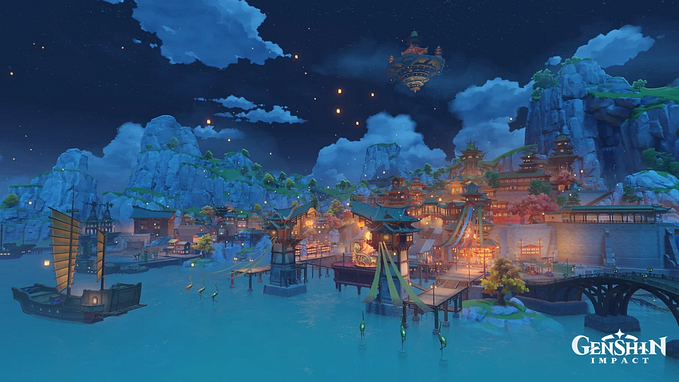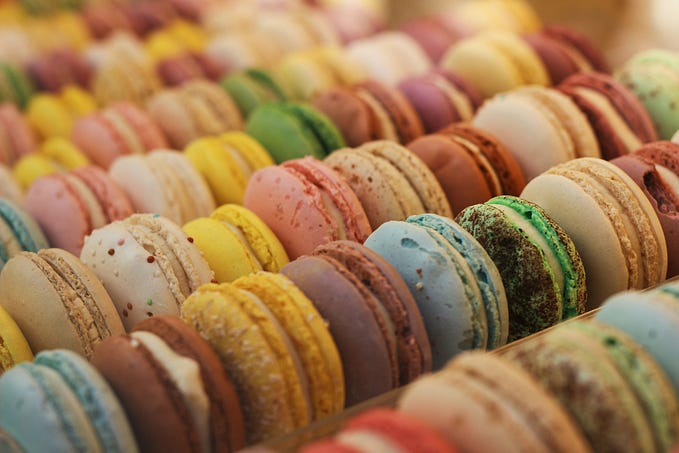What RM’s Indigo Says About the Truth, the Self, and Being Human

There’s a lot of lyric analysis one could do of RM’s Indigo (2022), of RM’s entire discography, really. But I want to follow three threads, because these threads are how I most relate to his music and to his words*. The first is seeking truth. The second is the elusive self. The third is how these come together to describe a particular human experience.
Understanding
Indigo starts with the song “Yun” and a sample of artist Yun Hyong Keun saying: “According to Plato’s humanity / It’s the human essence to seek truth, goodness, and beauty / It’s the sincerity in truth, the moral goodness, and the beauty / But in my opinion, you have it all when you have the truth.” Yun’s personal philosophy was that the human is more important than the art, which explains RM’s lyric, “I wanna be a human / ‘Fore I do some art.”
And if we follow the sample, if we follow Plato, to be a human is to seek the truth. One should aim for true knowledge or understanding. In “Yun,” RM says he felt like he was more human when he was a child, when there was just good and bad (Back the time / Far to when I was nine / When things were only good or bad / I think I was more of a human). Good and bad is a simpler truth, a moral truth rather than an understanding. (Though, incidentally, for Plato there isn’t really a difference, since the highest truth is the good.)
My favorite of RM’s lyrics from his entire corpus is from a song called “Always” that he released on December 31, 2016. In it he says, “I live to understand the world / But the world has never understood me.” These lines always struck me, because the primary way I relate to the world is by trying to understand it, trying to find truth. And I suspect that RM is similar, given the way it comes out in his lyrics and samples and the occasional post he writes to BTS fans. The way he’s interested in nature (which feels more real) and in art (which reveals, which makes the invisible visible). The way he’s analytical. The fact that he makes music at all.
But here’s the thing. Relating to the world this way is lonely. It’s extremely lonely. Even if you can relate to the world in other ways, even if you can connect to people, even if you have other goals to pursue. It’s still lonely when everything looks like a puzzle that you want to understand the truth of. It’s lonely when the world starts being more complicated than good and bad.
In the next few songs on Indigo, RM talks about fame (“My life is on display” in “Still Life”). It’s inevitable that this would come up given the trajectory of his life, the international fame of BTS, and the intense pressure, scrutiny, and surveillance that it brings. But also in how in the 21st century, because everything is saved, screenshotted, and reshared, you become trapped in those past versions of yourself, especially if you’re famous (“Fuck my intеrviews in years ago / I’m whole different, not that anymore / Fuck that Wiki, fuck all those infos / What a stranger, I don’t know this fool” in “Change pt.2”).
People often dismiss the horrors of fame when famous people have a lot of money (the “so what, he’s a millionaire” excuse), but that argument rests on the capitalistic assumption that everything has a price, that human worth has monetary value. And it actually emphasizes the fact that RM is, in many ways, an object for consumption (“When’s this wretched mask finally gonna come off?” in “들꽃놀이 (Wild Flower)”). The truth is, if you believe that humans deserve autonomy and privacy, his level of fame is dehumanizing (“I want to escape the frame of this canvas” in Still Life; “When everything I bеlieved in grew distant / When all this fame turned into shackles / Please take my desire away from me” in “들꽃놀이 (Wild Flower)”).
He’s more diplomatic in a March 2023 interview with El País, promoting Indigo. He says if you think about fame like it’s a rock, then it’s a rock — a weight, a burden — so he tries to think about how it gave him the freedom to make music he wants to. He was asked directly if the idol system is dehumanizing, which frankly isn’t a fair question to put on him — I’m not saying the idol system doesn’t deserve criticism, but I think you have to put similar criticism on most forms of work. His answer was that if he admits to any of it being bad, then journalists will write that it’s a horrible system that destroys young people, and, well, he’s right.
In a March 2023 interview with Vogue Spain, he says he recognizes that he chose to be in the idol industry, that no one pushed him into it, and with it he can help “recharg[e] the batteries of a mass audience” (recargarle las pilas a una audiencia masiva). But of course he says he feels pressure to not mess up, to not make mistakes. At the same time, he says he’s not relevant to the functioning of society, which is true in one sense. But he also has more than 40 million Instagram followers. He’s met multiple heads of state. His group was responsible for adding $5 billion to South Korea’s economy in 2021.
He doesn’t use this word, but I can’t believe that he never feels alienated. In the Marxian sense where you feel a disconnect from your labor (at least, I imagine so, even if he is able to make the music he wants to now), but also in the sense that you stop feeling connected to other people, to the world. And if you already started from a place of alienation because seeking truth and understanding is alienating, then his song about being lonely makes even more sense. Of course, it might be about missing a particular person or missing home, but it could also be about not belonging (“So many memories are on the floor / And now I hate the cities I don’t belong / Just wanna go back home” in “Lonely”).
All this said, another thing that crops up in multiple songs is the idea that he has to keep going. But it doesn’t necessarily feel inspiring to me so much as it sounds like he’s telling himself, “you don’t have a choice but to keep going” (“Yeah, can’t lock me in the frame, I’m movin’” in “Still Life”; “If I can just find a reason / To keep this endless chasin’” in “Hectic”). In the Vogue Spain interview, he says wonders how he can make his music matter and also that his ambition and his love of music keep driving him.
But he’s still very clearly an answer-seeker, someone who is always connecting to the big picture, which I have learned in my decades on this planet that most people don’t do. And that’s why in spite of the fact that I have never been famous, and no one looks for respite in the things I create, I still understand this seeking and questioning and loneliness and alienation and drive to keep going in spite of it all.
And the thing is, it doesn’t get any easier. In fact, in many ways it gets more difficult. I don’t for a second believe that having money and fame would make me feel more connected to the world. In fact, I think it might make things worse. And that leads me to my second thread, the self.
Self
In BTS’s discography, the “self” plays a role. They have a whole series of albums titled “Love Yourself.” They had “Love Yourself” and “Love Yourself: Speak Yourself” tours. Because RM is a writer of many of BTS’s lyrics, I’ve often wondered what he in particular means by the “self.” Because I don’t think it’s the self that our capitalist overlords have convinced us it is. That is, the self you must improve and care for — but only by buying specific products or turning yourself into a “brand.”
There is a pervasive idea in mainstream US culture especially that you must constantly work on yourself, fix yourself, better yourself, but in all of this, the self just becomes a site of capitalist control and a perpetuation of the neoliberal individual who is personally responsible for every problem in their life. Most self-care advice, most therapeutic intervention, has a limit. That is, you can’t “work on yourself” past a certain point. You can’t love yourself out of poverty or environmental harm or bigotry. There is not a bubble bath in the world that can make me love the 40-hour work week or make rent more affordable.
To me, none of this is what the self is. I come from a school of thought that sees the self as a situated, embodied phenomenon. Not an ego, not an individual soul, not the neoliberal self that is little more than a collection of identity categories that, conveniently, can be marketed to and/or legislated against.
In the song “Still Life,” RM rejects the fixed version of himself, the screenshotted RM. And I feel like maybe for RM it’s not the neoliberal self either. There aren’t as many explicit references to the self on the album as there are in BTS’s works, but there are hints.
In “№2,” he says, “A child who was hungry for recognition / Older people that are suited mind / My balloon filled with myself, explode / After it exploded, I knew it was empty inside.”
In “건망증 (Forg_tful),” he says, “I keep forgetting the me of yesterday / I’m only twenty-six, yeah, yeah / Why can’t I remember?”
In “들꽃놀이 (Wild Flower),” he says, “No name, that’s what I have / No shame, I’m on my grave / When your feet don’t touch the ground / When your own heart underestimates you / When your dreams devour you / When you feel you’re not yourself / All those times” and “No matter what it takes / Oh, let me be myself.”
It feels like a discontinuous self, maybe even a nameless self. A self he thought was shaped by ambition and dreams, but even after those dreams were reached, RM realized that his self was still empty.
Of course, it’s hard to tell with lyrics. In the Vogue Spain interview he says that sometimes he has lost himself, specifically in the “delirium of success” (delirio de éxito), but he also says the years in BTS helped him define who he is and learn to love himself — a process that he is still in. He says he puts that internal struggle into albums and videos. This is why I don’t think he could possibly mean a fixed self.
And this is also part of the reason why music like RM’s does help, maybe not make society function, but it helps keep people going. Music can help us out of dark places. Music can make us feel connected, like someone out there might understand how we feel, and, for me, it can help me to feel more human when I can connect to someone who is also lonely and seeking and felt more human when they were 9 years old. And that’s where I want to pick up the third thread.
Being a Human
There’s only so much you can do in a world that refuses to understand you. In a world filled with barriers to ways of living that don’t just force you back into the status quo — to quote a Radiohead song, to be “fitter, happier, more productive, a rat in a cage, on antibiotics.” When I say the self is situated, I mean you are born into a context, in a world with power relations and institutions and other people.
RM has said before that his Korean identity is ingrained, and in the El País interview he points out that this means carrying the trauma of colonization and rapid industrialization in Korea: “In the West, people just don’t get it. Korea is a country that has been invaded, razed to the ground, torn in two. Just 70 years ago, there was nothing. We were getting aid from the IMF and the UN.” This, too, affects how you understand and connect to the world. As RM says, it affects how hard you try to make a better life for yourself, “although, of course, there’s a dark side. Anything that happens too fast and too intensely has side effects.”
I grew up in a different context, the dark side of my experiences come from essentially the same power relations, but through different processes of normalization, so I can never know what this feels like for RM.
Though, one thing I find interesting about Indigo, as a whole, is that RM worked mostly with artists older than himself, in their 30s, 40s, 50s — on this album that he calls the last archive of his 20s. He mentions 9-year-old RM, 26-year-old RM, and he pleads to “let me be myself.” And I wonder if that’s why he looked to older people, not just for their musical experiences, but also their life experiences, the dark sides they’ve seen.
The trouble with looking to age, with hoping that with the end of the 20s comes answers is that, for me, the older I get, the less I know. The more I learn, the more I realize how much I don’t know. The more I learn about the world, the more pain and suffering and ignorance I see, the more horrible I think the world is. The more I understand, the harder it is for me to go on.
People give hackneyed advice about how in your 30s you feel more comfortable with yourself and you care less what people think. And that’s probably true for people who orient themselves to the world primarily through relationships with other people (which is probably normal — I know I’m the unusual one here), but when your goal is to understand the world, to seek truth — you don’t get more comfortable. Because the truth feels bad. The truth, the world, is awful. Plato was wrong. Being out of the cave and into the sun burns.
I can’t live according to all of my values because I also have to survive. Like RM, I have to keep going. But doing so tears me up inside. All the ways I have to compromise myself hurt. I’m lonely and not connected to anyone, and I want to go home, too.
But you can never go back home. My whole adult life I’ve been trying to recapture the things that made me happy about my childhood. Maybe I, too, want to be like me at 9 years old, back when the truth was good and bad. But it’s never the same. It’s like no matter how much I loved Twinkies as a kid, they actually taste like sugar and oil when I eat them now. Nostalgia, if you trace it back to the Greek, originally meant homesickness, but maybe it’s an attempt to find a continuity between past selves.
But if you understand the self as I do, as an embodied phenomenon rather than a fixed thing with properties, then part of self-discovery is realizing there’s not really a self to find. There’s no self to care for. There’s just the world and you are a part of it, no matter how much it hurts. To use a lyric from my favorite BTS song, “Sea,” RM says “I see ocean; l see desert / I see the world / Everything’s the same thing / With a different name / It’s life again.”
I think to really understand the world isn’t to love yourself but to lose yourself. And everything about 21st century life in our global capitalist world tells you not to do that. Because if there’s no self to blame, then you might start to see that it’s the structures of the world, of institutions, of art, that are the problem, that are trying to stop you from being human.
But we should want to be humans first.
—
*Translations of the Korean lyrics are from Genius










